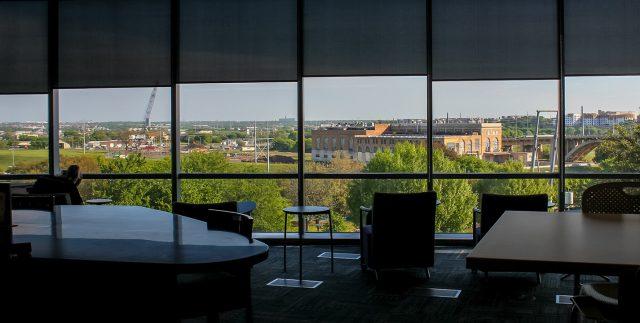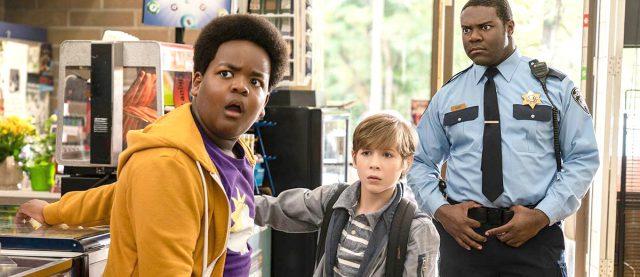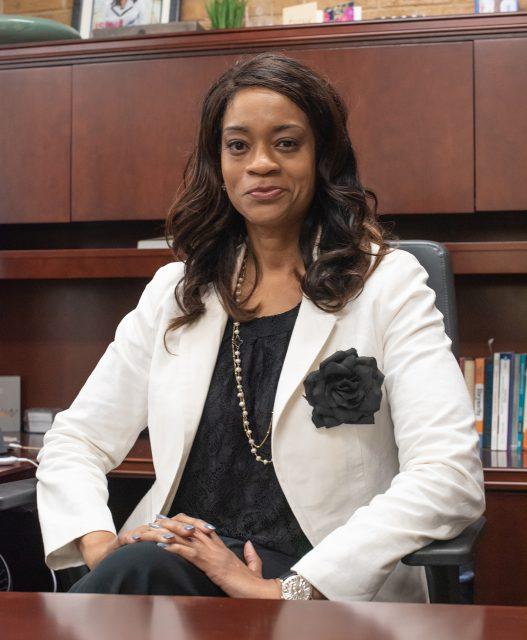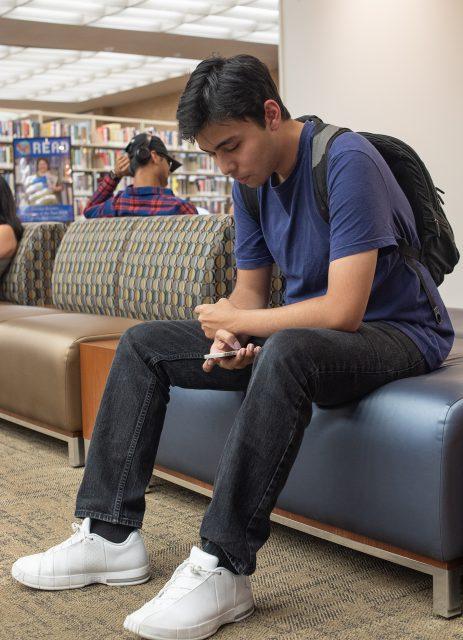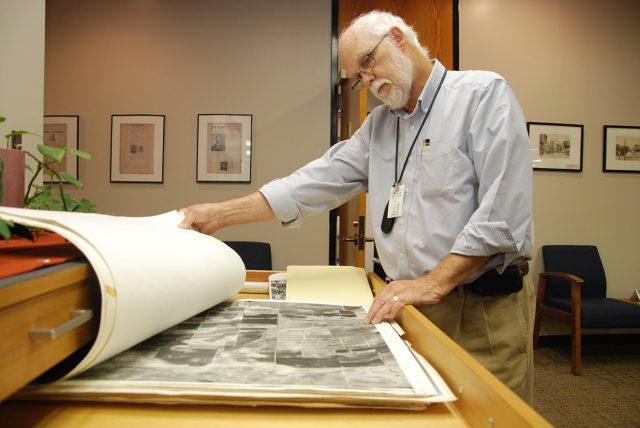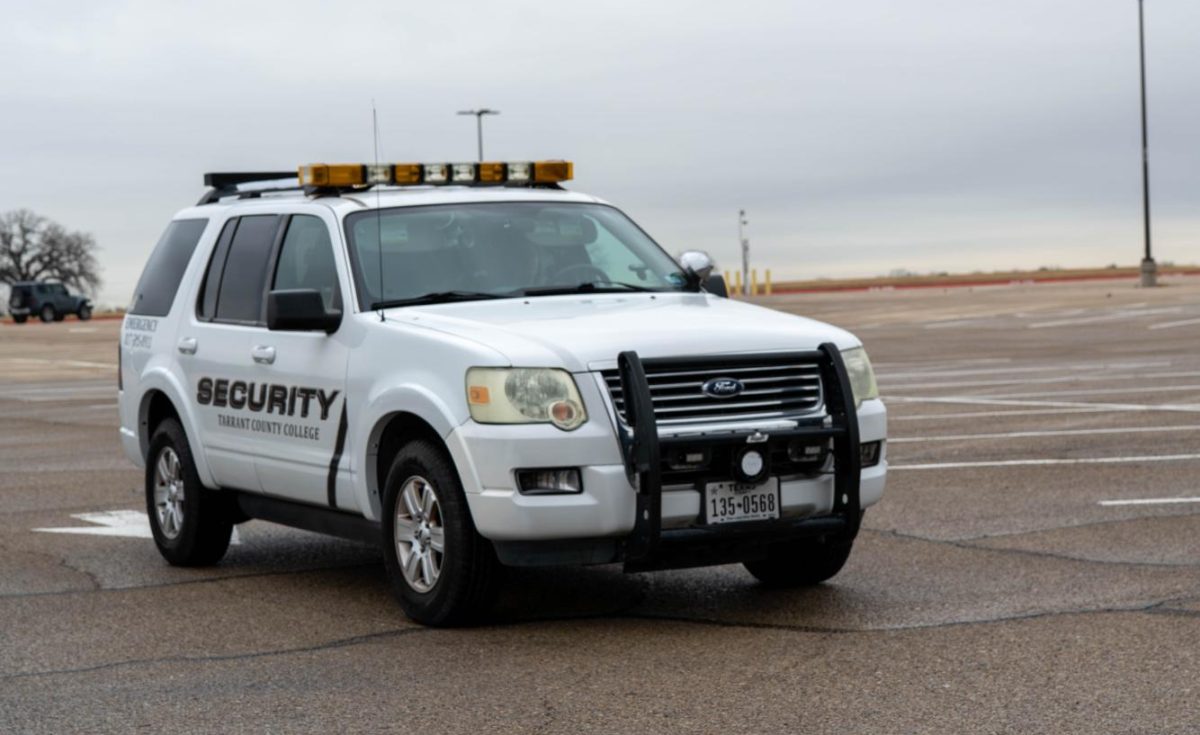By Juan Ibarra/editor-in-chief
As the 10th anniversary of TR Campus comes around, looking back at the history of the campus shows just how different TCC could have been had things gone differently.
The origins of TR Campus are unorthodox, with the creation of the campus being long and drawn out.
“We were trying to build the campus downtown and it was going to be on both sides of the Trinity River,” Bill Lace, previous vice chancellor of administration, said.
The original plan for TR Campus was to have the location spread from one side of the river to the other using a bridge.
According to Lace, the plan was ultimately controversial after they never got final permission to create a bridge from the Army Corps of Engineers, and were left with a big ques stion as to how they were going to construct the campus without the bridge, the main focal point of the original plan.
That was when board member Bobby McGee realized they could offer to buy the previously owned RadioShack building.
“He knew that the RadioShack complex, which was not owned by RadioShack at that time, had been sold to a German consortium,” Lace said. “He knew the German consortium was trying to lease some of the space, and wondered if the consortium would be willing to sell the whole thing.”
It was the perfect plan for the school, as TCC needed to finish the campus while also not enduring any large costs to the school since the original idea was scrapped.
“Had that property not been for sale, who knows what we would have done, because we were way, way, way over budget on the new campus,” Lace said.
In 2008, TCC announced the successful purchase of the RadioShack complex for $238 million dollars.
In the end, it worked out for the school, but not without a higher price than expected.
“Originally, we had pegged the construction cost of that campus at $175 million, and by the time we had bought the RadioShack complex the price had gone up to well over $300 million,” Lace said.
After the challenging process of creating the school, it finally opened with Tahita Fulkerson as the founding president. Fulkerson believed in a very friendly and inclusionary vision for the school.
“The campus family read a book describing the Walt Disney philosophy of service — we discussed it and used it to ensure that students were well-served,” Fulkerson said.
The Walt Disney philosophy of service focuses on four key attributes: needs, wants, stereotypes and emotions.
On top of reading the Walt Disney book, the TR staff read “The Same Kind of Different as Me,” furthering the approach to try and be as open to new things as possible.
“It [the book] shows that very different people — people of different races — can become close enough that they feel like family,” Fulkerson said.
Since the founding of the school, Fulkerson has retired and passed along the role of campus president to Sean Madison, who took over in 2015.
Madison upholds the inclusionary nature of Fulkerson’s teachings, while also learning to grow under the guidance of Chancellor Eugene Giovannini and his overall plans for TCC.
“With the establishment of the College’s three goals and eight principles, we are refining a more nuanced understanding of these needs and our potential (and capacity) to meet these needs,” Madison said.
The evolution of TR Campus and TCC as a whole helps to show the trajectory of the future for the college, and gives a glimpse at what it might be like ten years from now.
“By 2029, I hope to see the realization of the College’s three goals and eight principles,” Madison said. “I aspire that the realization of those goals will be imprinted in every graduate, in every entrepreneurial endeavor influenced by the work of our faculty and staff, in every building that mirrors the spirit of collaborative learning and support of learning activities, and in every business partnership that builds upon the values and character of our growing community.”






















